Things are tough out there for new businesses. According to the Bureau of Labor Statistics’ Business Employment Dynamics, the number of businesses surviving past the first year has dropped from 569,419 in 1994 to 106,789 in 2016.
Of the small businesses that opened in March 2015, only 79.9% made it to March 2016. Only about half make it to the fifth year. Fifty-one percent of businesses started in 2011 made it to 2016.
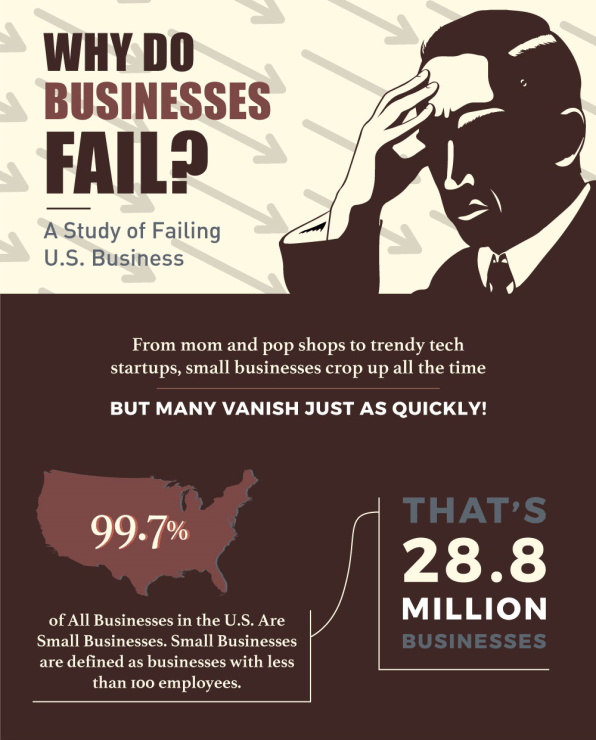
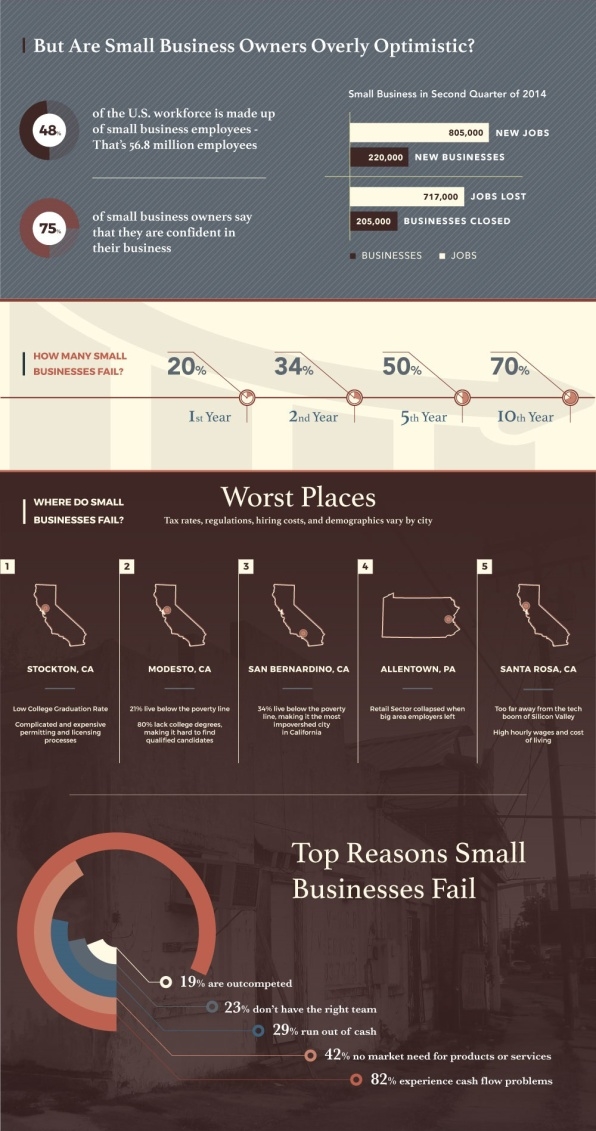
Location, location, location isn’t just about real estate. Recent analysis by CNBC found that there are metro areas where the odds are stacked against a founder. Four of the bottom five are in California, including Stockton, Modesto, San Bernardino, and Santa Rosa, along with Allentown, Pennsylvania.
Reasons range from an uneducated and impoverished workforce and stringent permitting regulations to an exodus of big companies taking their employees with them.
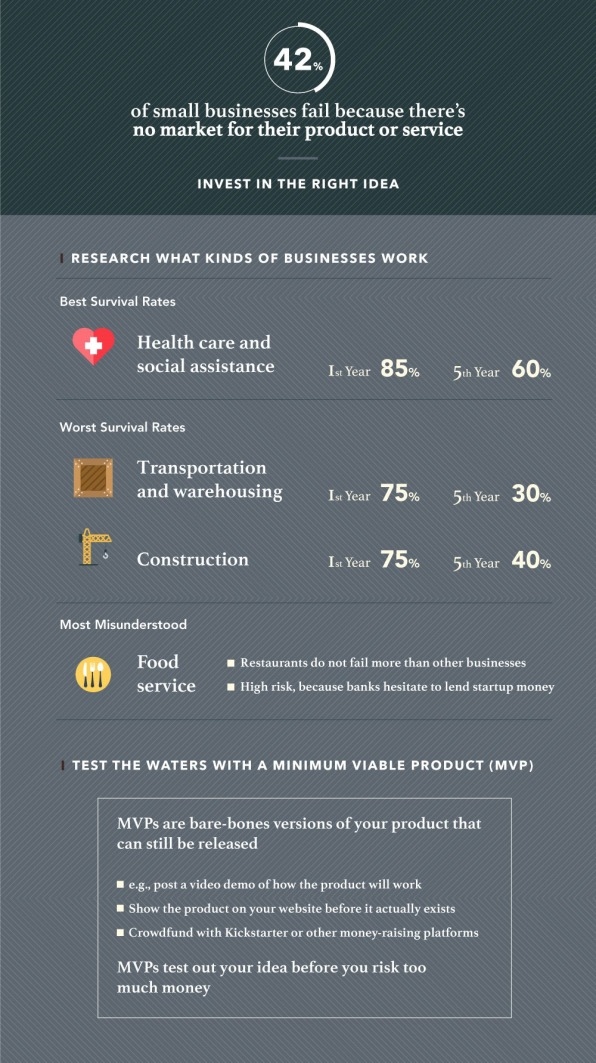
Certain industry sectors have a higher than average success rate. Although healthcare startups saw a decrease in the amount of overall investment, according to CB Insights, they and finance startups have the best chance at sticking around for five years.
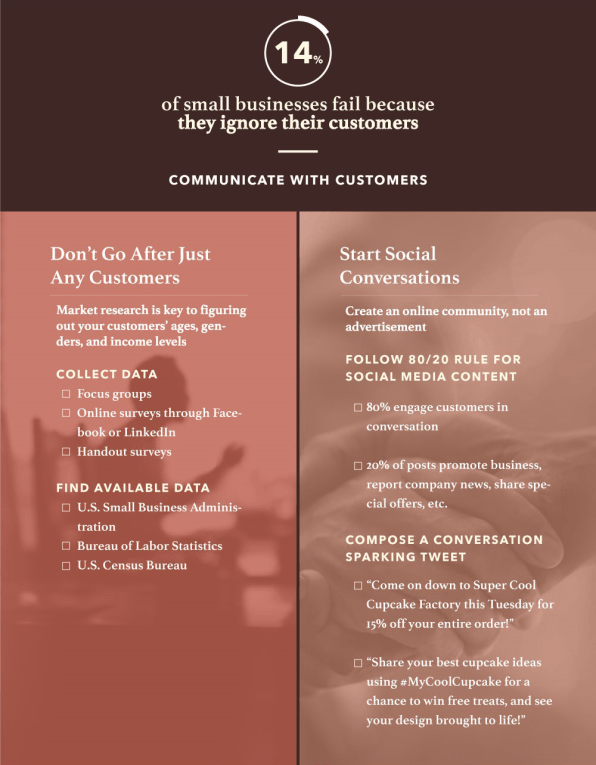
As a free or low-cost tool, some believe that social media can contribute to a startup’s success and longevity. “Social media has the ability to build credibility, acquire new customers, and even convert followers into sales,” according to Socialnomics.
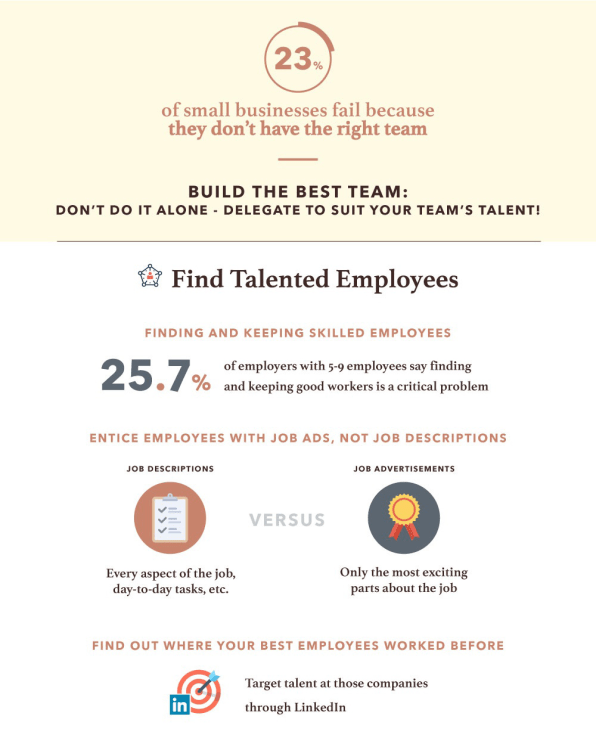
Funding is important, but human capital can make or break an early stage startup. For the second year in a row, a report on startups from First Round Review found that the top concern for business owners was whether they’d be able to find and hire skilled talent.
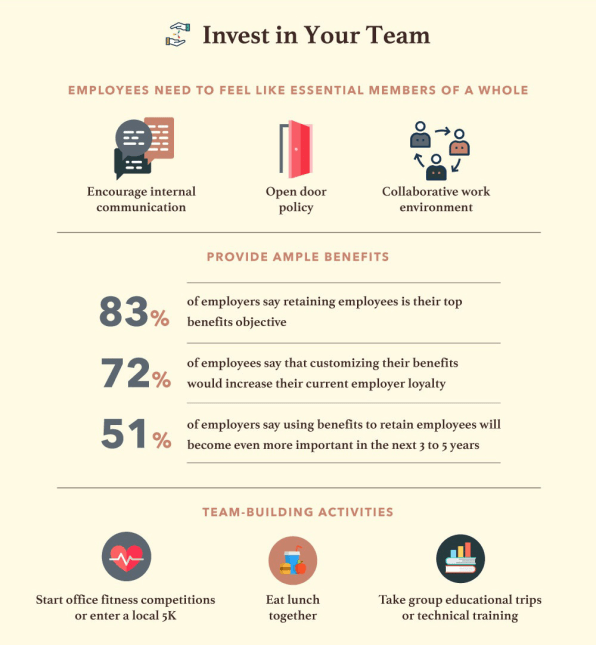
(For full source list, click here)
The reasons that companies fail are as varied as the startups themselves, but this analysis of public records and trends reveals several factors.
Things are tough out there for new businesses. According to the Bureau of Labor Statistics’ Business Employment Dynamics, the number of businesses surviving past the first year has dropped from 569,419 in 1994 to 106,789 in 2016.
Fast Company , Read Full Story
(28)
